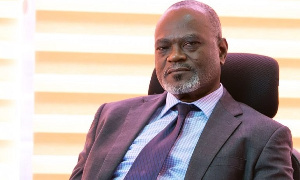 Dr Kofi Amoah is a Business mogul and philantropist
Dr Kofi Amoah is a Business mogul and philantropist
Borrowing can be used as a catalyst for economic growth
Ghana’s public debt stock has reached alarming levels
Dr Kofi Amoah wants government to be strategic in borrowing
Business mogul, Dr Kofi Amoah has charged government to reduce its excessive borrowing through a prudent debt management strategy.
Ghana’s public debt stock, according to the Bank of Ghana has increased significantly in the past months reaching GH¢341.8 billion as of September 2021.
Speaking on GhanaWeb TV’s Lowdown with host Nii Akwei Ismail Akwei, Dr Kofi Amoah said though borrowing is not wrong, the rate of government borrowing and handing over contracts to foreigners with that borrowed money is rather wrong.
“For instance when we want to build a flyover, we rather go and contract a foreign company who will come with their own cost and personnel. However, if we trust each other and have confidence in each other and believe that a Ghanaian company can do that flyover, this will create jobs for more Ghanaian artisans and people”
“It will then create a multiplier effect as it described in economics which will significantly benefit the country. Now when the contract is completed and the foreigners leave, we will now have a loan to pay with interest. So by that simple analogy, borrowing is not wrong, because borrowing can be a catalyst used to improve our economy and we need to emulate a common-sense approach by borrowing strategically,” he explained.
Meanwhile, Ghana’s public debt stock has reached alarming levels which is equivalent to 77.8% of Gross Domestic Product (GDP).
Due to this, analysts and economists have cautioned that the country is likely to return to the International Monetary Fund for assistance.
Between July and September, 2021, GH¢5.9 billion fresh loans were added to the total debt of the country. The increase in the debt was however attributed to the domestic debt and depreciation of the cedi against the US dollar.
Watch the full interview below: